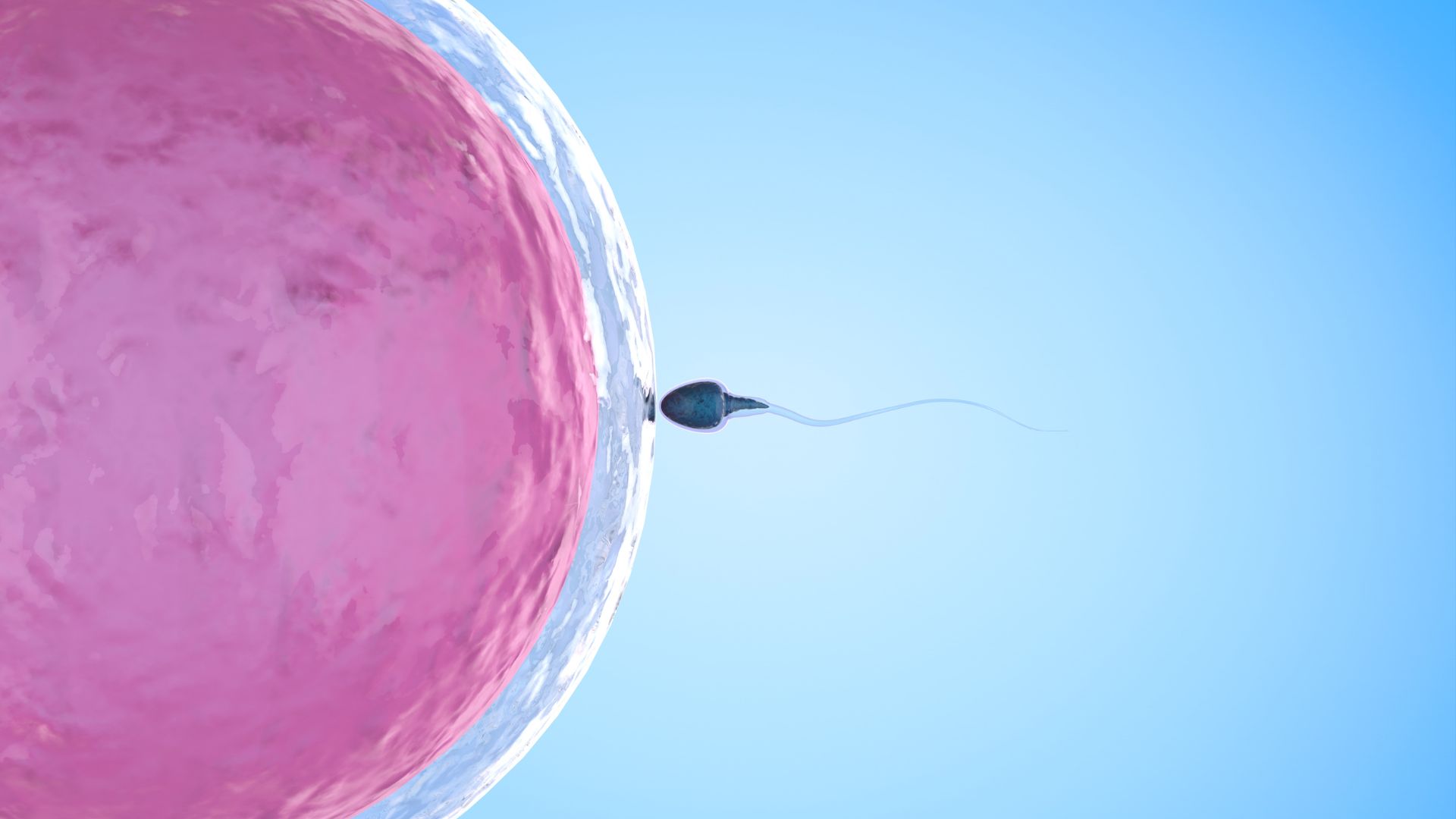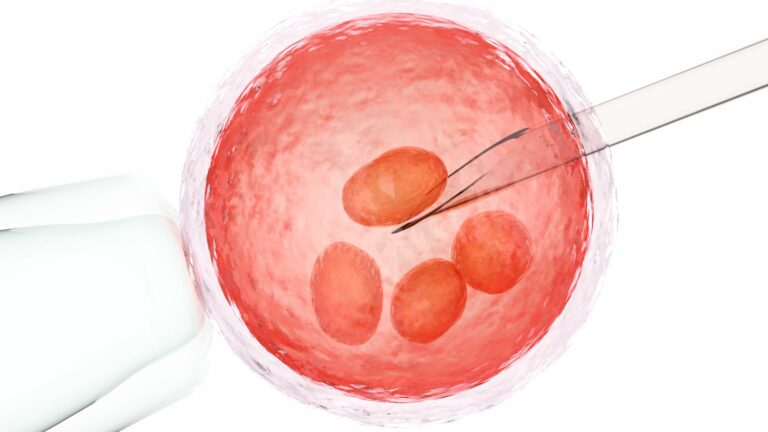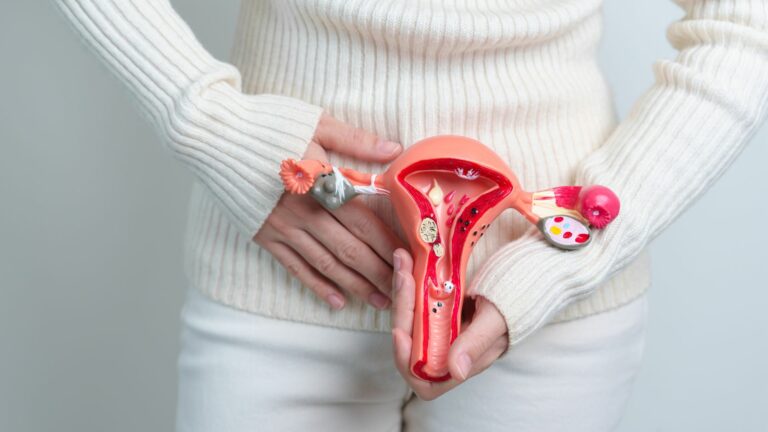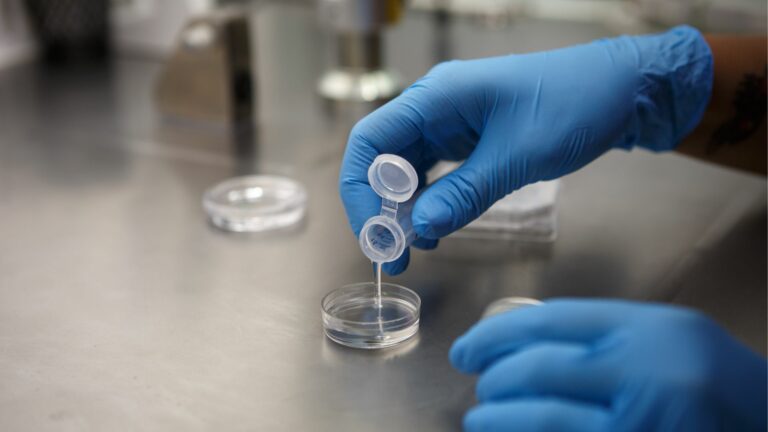
Are you considering using donor eggs, sperm, or embryos to build your family? Perhaps you’re facing infertility, are part of a same-sex couple, or are a single person desiring to become a parent.
While donor conception offers a beautiful path to parenthood, it’s normal to experience a complex range of emotions along the way.
In this article, we’ll explore the emotional landscape of using donor gametes and provide guidance and resources to support you on your journey.
Key Takeaways:
| Insight | Takeaway |
|---|---|
| Grief and loss are normal responses | Acknowledging and processing feelings of sadness, anger, or guilt is an important part of the journey. |
| Parenthood is about love, not genes | Redefining parenthood and focusing on the unique qualities you’ll bring to your child’s life can help combat self-doubt. |
| Choosing a donor is a deeply personal decision | Working with a reputable clinic, prioritizing your values, and seeking support can make the selection process less overwhelming. |
| Disclosure is an ongoing process | Deciding if, when, and how to tell your child their conception story is a personal choice that may evolve over time. |
| Support is crucial | Connecting with others who understand your experience through support groups, therapy, or online communities can provide invaluable encouragement and guidance. |
| Embracing joy and gratitude | Shifting focus to the profound fulfillment of building a loving family can help you navigate the emotional complexities. |
Acknowledging Grief and Loss
Facing infertility or the need to use donor gametes can trigger a sense of grief over the loss of a biological connection to your future child. It’s important to give yourself permission to feel and process emotions like:
- Sadness over the imagined future that may not come to pass
- Anger or frustration at the circumstances necessitating donor conception
- Shame or guilt, especially if infertility stems from one partner
Here’s a step-by-step guide to help navigate this emotional stage:
- Allow yourself to feel: Don’t suppress your emotions. Give yourself time and space to experience your feelings fully.
- Seek support:
- Consider individual or couples counseling with a therapist specializing in fertility issues.
- Join online or in-person support groups to connect with others on a similar journey. Resources like RESOLVE: The National Infertility Association can help you find groups.
- Practice self-care: Prioritize activities that nourish you emotionally and physically, such as exercise, mindfulness practices, or spending time in nature.
- Be patient: Remember that grief is a process, not an event with a clear end date. There’s no “right” timeline for moving forward.
Examples of processing grief:
- Journaling about your feelings
- Attending a support group meeting
- Going for a walk in nature to reflect and recharge
Remember, grief is a normal, healthy response to the circumstances you’re facing. Experiencing it doesn’t negate your desire to become a parent.
Overcoming Self-Doubt
Using donor gametes can sometimes stir up feelings of inadequacy, leading to thoughts like:
- “Will I feel like a ‘real’ parent?”
- “Is it fair to my partner if I can’t contribute my genetics?”
- “Will my child feel fully like mine?”
To navigate these challenging emotions:
- Redefine parenthood: Parenthood is about love, nurturing, and commitment, not just shared genes. Donor conception offers a beautiful way to build a family.
- Focus on your strengths: Remind yourself of the unique qualities and love you’ll bring to your child’s life. Consider creating a list of these strengths.
- Combat guilt: If you struggle with guilt, recognize that infertility is not your fault. You have a right to pursue parenthood.
- Communicate and offer support: If your partner is facing infertility, open communication and reassurance of your love and support are crucial.
Tips for overcoming self-doubt:
- Write a letter to your future child expressing your love and excitement to become their parent.
- Create affirmations about your worthiness and ability to be an amazing parent.
- Read stories from other parents who have conceived using donor gametes.
| Source of Validation | Why It Matters |
|---|---|
| Stories from other donor-conceived families | Hearing experiences of strong parent-child bonds can be incredibly affirming. |
| Research on attachment | Studies consistently show that parents who use donor gametes feel just as bonded to their children as parents who conceive naturally. |
Remember, love is the foundation of a family. Your desire to become a parent is valid and worthy.
Navigating the Donor Selection Process
Choosing a donor is a deeply personal decision with considerable emotional weight. Factors to consider include:
- Physical characteristics: You might seek a donor with some resemblance to yourself or your partner.
- Medical and genetic history: Ensuring the donor has a healthy background with no inheritable conditions is crucial.
- Personality and interests: Some donor profiles offer insights into personality, education, and hobbies.
- Level of openness: Decide how much information you want about the donor and potential for future contact.
A step-by-step guide to mindful donor selection:
- Work with a reputable clinic or donor bank with experienced staff to guide you through the selection process.
- Prioritize your values: Talk with your partner (if applicable) about what factors are most important to you. Create a list of your top priorities for reference.
- Set realistic expectations: Finding the “perfect” donor may not be possible. Be willing to compromise on certain aspects.
- Take your time: Review profiles thoughtfully without feeling pressured to rush your decision.
- Seek support: Consider working with a therapist specializing in donor conception to help process emotions and gain clarity on priorities.
The selection process can be emotionally overwhelming and may stir up stress, self-comparison, and uncertainty.
Some examples:
- Feeling the weight of a decision with lifelong implications
- Scrutinizing your own characteristics against potential donors
- Second-guessing your choices or worrying about the future
Remember, there’s no single “right” way to choose a donor. Trust your instincts and seek support when needed.
Anticipating the Future with Positivity
It’s natural to experience anxieties about your future child and the bond you’ll share. But rest assured, parental love transcends genetics.
Studies consistently show that parents using donor gametes form strong, secure attachments with their children.
Common anxieties and how to approach them:
- “Will I love the child unconditionally?”
Absolutely! Your love, care, and commitment define your relationship, not genetics. - “Will my child feel like ‘mine’?”
Yes! Bonding is nurtured through responsiveness, skin-to-skin contact, and creating a loving environment. - “What if bonding is difficult?”
Bonding is a process. The American Academy of Child and Adolescent Psychiatry offers helpful guidance on [building attachment](invalid URL removed).
Tips for positive anticipation:
- Practice visualization. Spend time imagining yourself nurturing and bonding with your child.
- Focus on the joys of parenthood and the love you’ll share. Make a list of experiences you look forward to.
- Communicate openly with your partner about hopes, anxieties, and expectations.
- Consider therapy as a valuable tool to process anxieties and develop coping strategies.
Remember, anticipation is normal. Focus on the beautiful aspects of creating your family and seek support when needed.
The Question of Disclosure
Deciding whether to disclose to your child that they were conceived using donor gametes is a deeply personal choice with no single “right” answer.
Consider the potential benefits of openness:
- Honesty and trust: Openness fosters a foundation of honesty and trust within the family.
- Preventing accidental discovery: Avoids potential shock or betrayal if the child learns later in life.
- Positive self-identity: Allows the child to integrate their origins into their sense of self from a young age.
- Medical history: Access to accurate medical information can be crucial for future health.
Also weigh important considerations:
- Your comfort level: Disclosure should come from a place of confidence and acceptance.
- The child’s age and maturity: Explain in age-appropriate ways as the child’s understanding develops.
- Potential reactions: Consider how your child might respond and how you will handle their questions and emotions.
- Societal attitudes: While acceptance is growing, prepare for possible questions or reactions from others.
Resources for navigating disclosure:
| Resource | How It Helps |
|---|---|
| Age-appropriate children’s books | Titles like “The Pea That Was Me” or “Phoebe’s Family” can facilitate the conversation. |
| Organizations and support groups | The Donor Conception Network and similar groups offer resources and support for disclosure. |
| Therapy | Consult a therapist who specializes in family communication and donor conception for guidance. |
Remember, disclosure is an ongoing process. It’s okay to reevaluate as your child grows and your family’s needs change.
Finding Support
Using donor gametes can be an emotionally complex journey, but you don’t have to navigate it alone. Seeking support is crucial for your well-being and can provide a sense of community. Consider:
- Support groups: Join online or in-person groups specifically for individuals and couples using donor conception.
- Therapy: Individual or couples therapy with a specialist in fertility and donor conception provides a safe space to process emotions and gain coping tools.
- Online forums: Engage with others on a similar path in online communities dedicated to donor conception.
- Trusted loved ones: Lean on friends and family who offer empathy and a listening ear, even if they don’t fully understand your experience.
Benefits of support include:
- Feeling understood and less isolated
Connecting with others who “get it” can combat feelings of isolation. - Validation of your emotions
Support groups normalize the full range of emotions you may experience. - Practical advice
Learn from the experiences of others who have navigated the donor selection process, disclosure conversations, and other aspects of the journey.
Remember, seeking support is a sign of strength, not weakness. Connecting with others can provide invaluable encouragement and guidance.
Embracing Joy and Gratitude
While the path to parenthood through donor gametes can be emotionally complex, the ultimate reward is the profound fulfillment of building a loving family.
As you navigate initial hurdles, allow yourself to shift focus to the joys ahead.
Tips for cultivating positive anticipation:
- Create a vision board representing your future family through pictures, quotes, or affirmations.
- Read stories of families formed through donor conception to spark excitement and connection.
- Talk with other parents who used donor gametes about their experiences with parenthood.
Most importantly, remember that love is the foundation. The love you’ll share with your child transcends genetics.
Embrace gratitude:
- Savor every milestone of your journey, from a positive pregnancy test to your child’s first smile.
- Take moments to feel thankful for the opportunity to experience parenthood in this unique way.
- Celebrate your growing family and the courage and love that brought you together.
Using donor gametes is a brave and beautiful decision. Embrace it with pride and know that a world of joy awaits.
For additional support and resources, consider:
- The American Society for Reproductive Medicine (ASRM) for educational resources and clinic directories
- The Family Equality Council (Family Equality) for advocacy and family-building resources
IVF Centers in India
Below are some fertility centers across India that may provide support and services for those considering or undergoing IVF with donor gametes:
IVF Centers in Gaya
IVF Centers in Udaipur
IVF Centers in Kolapur
IVF Centers in Ajmer
IVF Centers in Salem
IVF Centers in Bareilly
IVF Centers in Moradabad
IVF Centers in Warangal
You’ve got this! Wishing you all the best on your path to parenthood. Remember, you are not alone, and your journey is one of profound love and courage.
Embrace the adventure ahead and know that a beautiful family, built on the sturdy foundation of your love, awaits.






